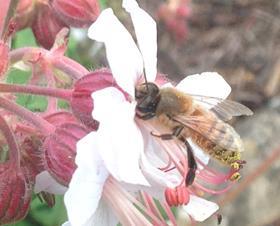
Neonicotinoid use on oilseed rape crops is linked to large-scale and long-term decline in wild bee species, according to a new study.
Published yesterday (16 August) in science journal Nature Communications, the study adds to previous research that has identified short-term and small-scale negative effects of neonics on bees.
It examined changes in 62 wild bee species that foraged on oilseed rape between 1994 and 2011 – when wide-scale commercial use of neonics was introduced – and as such is the first long-term study of its kind.
For five of the species investigated, the study found that neonics exposure caused at least 20 per cent of local population extinctions of wild bees.
It suggested that neonics use is linked with wild bee biodiversity losses at a national scale and has implications for the conservation of bee communities in intensively-farmed landscapes.
The decline was around three times stronger among species that regularly feed on oilseed rape, such as the buff-tailed bumblebee, compared to species that forage on a range of floral resources, suggesting that the crop is a principal mechanism of neonics exposure among wild bees.
“As a flowering crop, oilseed rape is beneficial for pollinating insects. This benefit however, appears to be more than nullified by the effect of neonicotinoid seed treatment on a range of wild bee species,” said lead author, Professor Ben Woodcock.
But he told the BBC that: 'Just because you say 'don't use neonicotinoids anymore', the likelihood is that another pesticide is going to have to be used to compensate for that, that is going to have impacts on runoffs into waterways and on other species that you can control for.”
The study will add to an extensive body of evidence on the risks neonics pose to bees by the European Food Standards Authority, expected to be complete by January 2017.
Research was led by the Centre for Ecology & Hydrology using data from Fera Science and the Bees, Wasps and Ants Recording Scheme.






No comments yet